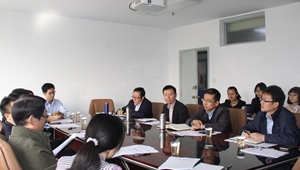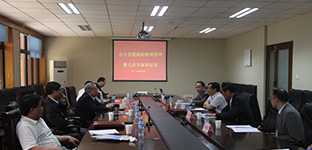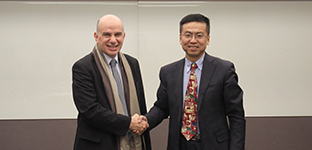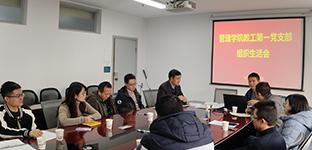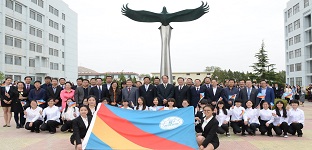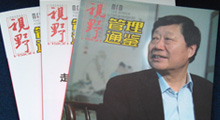- 个人简介
- 研究领域
- 主讲课程
- 研究成果
- 研究项目
- 获奖情况
彭正敏,香港树仁大学工商管理学系 副教授兼研究员,兰州大学管理学院飞天学者,近五年共发表13篇英文期刊文章(其中4篇为第一作者或唯一作者,2篇为第二作者兼通讯作者)及一篇英文著作章节,期刊包括Journal of Management, Human Resources Management, Journal of World Business, Intelligence, Asia Pacific Journal of Management等。中文著作有《青年职业选择及发展:基于实证的建议》,以及一篇中文期刊文章(CSSCI)。连续三年获得香港研究资助局(RGC)的支持,获两项总计超过100万元的个人研究项目,以及一项超过300万的团队研究项目。获得的学术认可还包括最佳论文奖,国际期刊最佳审稿人,以及一些国际会议的报告邀请等。
PUBLICATION (INTERNATIONAL REFERRED JOURNAL PAPERS)
1. Peng, K. Z., Chen, Z., Zhang, I. D., Li J. S. (2019, online) Unwilling to leave the good Samaritans: How peer interpersonal- oriented citizenship behaviors retains “me”. Asia Pacific Journal of Management, doi.org/10.1007/s10490-019-09685-x.
2. Rao, W. W., Zeng, L. N., Zhang, J. W., Zong, Q. Q., An, F. R., Ng, C. H., Ungvari, G. S., Yang, F. Y., Zhang, J., Peng, K. Z., & Xiang, Y. T. (2019). Worldwide prevalence of falls in older adults with psychiatric disorders: A meta-analysis of observational studies. Psychiatry research, 273, 114-120.
3. Cheung, F. Y. M.*, Peng, K., & Wong, C. S. (2018). Beyond exchange and prosocial motives, is altruistic helping a valid motive for organizational citizenship behavior? Chinese Management Studies, 12(1), 222-242.
4. Wang, Y., Peng, K. Z.*, Mao, Y., & Lan, J. (2018). Development of a Chinese measure on twelve basic emotions and a preliminary test on a two-dimensional model on emotions-job outcome relationship. Asia Pacific Journal of Management, 35(2), 529-564.
5. Peng, K. Z. * (2017). Responding to emotions in China: Gender differences and the emotion-job outcome relation- ship. Asia Pacific Journal of Management, 34, 443-460.
6. Peng, K. Z. * (2017) Exhaustion and emotional demands in China: A large-scale investigation across occupations. Frontiers of Business Research in China, 11(1), 45-68.
7. Liu, L. Y, Peng, K. Z., Wong, C. S., & Mao, Y.* (2017). Different forms of relationship between vocational interests and career maturity in Chinese context. Journal of Career Development, 44(5), 425-439.
8. Lam, L. W., Peng, K. Z.*, Wong, C. S., & Lau, D. (2017). Is more feedback-seeking always better? Leader-member exchange moderates the relationship between feedback-seeking behavior and performance. Journal of Management. 43(7), 2195-2217.
9. Peng, K. Z.*, Wong, C. S., & Song, L. J. (2016). How do Chinese employees react to psychological contract violation? Journal of World Business, 51(5), 815-825.
10. Cheung, M.*, Peng, K. Z., & Wong, C. S. (2014). Supervisor attribution of subordinates’ organizational citizenship behavior motives. Journal of Managerial Psychology, 29(8), 922-937.
11. Liu, L. Y.*, Peng, K. Z., & Wong, C. S. (2014). Career maturity and job attainment: The moderating roles of emotional intelligence and social vocational interest. International Journal for Educational and Vocational Guidance, 14(3), 293-307.
12. Mao, Y., Wong, C. S.*, & Peng, K. Z. (2013). Breaking Institutionalized Corruption: Is the Experience of the Hong Kong Independent Commission against Corruption Generalizable? Asia Pacific Journal of Management, 30(4), 1115–1124.
13. Song, L. J.*, Lu, Q., Peng, K. Z., Wong, C. S., & WU, W. (2013). The Effect of Leader Positive Affectivity on Team Member Turnover Intention and Team OCB: A Resource Conservation Perspective. Frontiers of Business Research in China, 7(3), 311-332.
14. Mao, Y. *, Peng, K. Z., & Wong, C. S. (2012). Indigenous research on Asia: In search of the emic components of guanxi. Asia Pacific Journal of Management, 29(4), 1143-1168.
15. Chan K. W.*, Wyatt T. A., Peng K. Z., Yiu D. W., & Wong C. S. (2012). Another Angle on the HRM Convergence and Divergence Debate: Preliminary Evidence by comparing a Foreign versus Local Bank in China. Advances in Management, 5(11), 70-79.
16. Yan, M.N.*, Peng, K. Z., Francesco, A. M. (2011). The Differential Effects of Job Design on Knowledge Workers and Manual Workers: A Field Quasi-experiment in China. Human Resource Management, 50(3), 411-428.
17. Wong, C. S.*, Wong, P. M., & Peng, K. Z. (2011). An Exploratory Study on the Relationship between Parents’ Career Interests and the Career Interests of Young Adults, International Journal of Educational and Vocational Guidance, 11(1), 39-54.
18. Wong, C. S., Peng, K. Z.*, Shi, J., & Mao, Y. (2011). Differences between Odd Number and Even Number Response Formats: Evidence from Mainland Chinese Respondents. Asia Pacific Journal of Management, 28(2), 379-399.
19. Peng, K. Z.*, Wong, C. S., & Che, H. S. (2010). The missing link between emotional demands and exhaustion. Journal of Managerial Psychology, 25(7), 777-798.
20. Song, L. J.*, Huang, G. H., Peng, K. Z., Law, K. S., Wong, C. S. & Chen, Z. (2010). Differential effects of general mental ability and emotional intelligence on academic performance and social interactions. Intelligence, 38(1), 137-143.
21. Wong, C. S.*, Wong, P. M., & Peng, K. Z. (2010). Effect of middle-level leader and teacher emotional intelligence on school teachers’ job satisfaction: The case of Hong Kong. Educational Management, Administration and Leadership, 38(1), 59-70.
22. Peng, K. Z.*, Ngo, H. Y., Shi, J. Q., & Wong, C. S. (2009). Gender differences in the work commitment of Chinese workers: An investigation of two alternative explanations. Journal of World Business, 44 (3), 323-335.
*Corresponding Author
PUBLICATION (CSSCI, CHINESE SOCIAL SCIENCE CITATION INDEX)
1. 彭正敏。(2017) 情感與理智的較量:中國員工如何面對雇傭關係的背叛。清華商業評論,第7-8期,40-45。
2. 劉豔,陳江,黃熾森,彭正敏。(2014) 青年職業興趣量表的開發及其對就業的影響。武漢大學學報,第67期,第6卷,25-32。
3. 黃熾森,張鳳儀,彭正敏。(2012) 傳統智慧跟情緒智慧測驗的信度 – 基於中國樣本的研究。南大商學評論,第9卷,第2期,116-126。
4. 黃熾森,彭正敏,蘭俊棒。(2012) 情緒智力在中國。人力資源管理評論,第1輯,1-13。
5. 馬燕蘭,王建榮,彭正敏,黃熾森。(2010) 護士人格特徵與優質護理行為相關性研究。中國護理管理,第10卷,第5期,58-62。
6. 馬燕蘭,王建榮,彭正敏。(2010)我院34名主動離職護士的職業興趣分析。護理管理雜誌,第10卷,第1期,12-13。
7. 彭正敏,林絢暉,張繼明,車宏生。(2004) 情緒智力的能力模型。心理科學進展,第12卷,第6期,817-823。
BOOK CHAPTER
1. Wang, C.W., Peng, K.Z., Wong, C.S., Gua, Y.J., & Hsieh, H.C. (2016). Assessing job applicants’ emotional competency in interviews. In C.S. Wong (Eds.). Emotional intelligence at work: 18-year journey of a researcher. London and New York: Routledge, Taylor & Francis Group, pp. 255-271.
2. Wong, C. S., & Peng, K. Z. (2012). Chinese Emotional Intelligence. In Huang, X. & Bond, M. H. (Eds.) Handbook of Chinese Organizational Behavior: Integrating Theory, Research and Practices, 87-102. UK: Edwards Elgar Publishing Limited.
BOOK (IN CHINESE)
1. 劉艷,彭正敏,黃熾森。(2018) 青年職業選擇及發展:基於實證的建議。北京大學出版社。
CONSULTING REPORTS
1. Iun, J., Wong, C.S., Peng, K. Z., & Mao, Y. N (2013). Training Manual: Bridging the Expectations between Generation-Y Employees and Generation-X Managers (with 120-minute DVD).
2. Peng, K. Z., Wong, C.S., Iun, S.J., & Wong, P. M. (2010). 澳門青少年職業輔導計劃:評估工具可用性之研究 (in Chinese). Submitted to The Education and Youth Bureau, Macau Special Administrative Region Government.
3. Wong, C.S., Peng, K. Z., Iun, S. J., & Huang, G. H. (2009). Development of Assessment Kit for Job-Matching for the Labour Department Progress Report. Submitted to Labour Department, Hong Kong SAR.
AWARDS
1. Best Reviewer of 2017, Asia Pacific Journal of Management.
2. Best Paper Award for the paper “Differential effects of social exchange relationship and psychological contract violation on constructive and destructive responses” by The 2nd Frontiers of Business Research in China International Symposium, May 22-23, 2015 Beijing, China (Leading author).
3. Best Doctoral Student Paper Award for the paper “From bilateral to multilateral perspective: Predicting consequences of psychological contract breach/violation” by the Sixth Asia Academy of Management Conference, Taipei, December 14-16, 2008 (Leading author).
4. Best Paper Award Finalist for the paper “Does the construct of altruistic helping really exist as a motive of organizational citizenship behaviors?” by the Sixth Asia Academy of Management Conference, Taipei, December 14-16, 2008 (Leading author).
RESEARCH GRANT AWARDED
1. 01/2017 – 12/2019 IDS-RGC Grant on “Further Enhancement of interdisplinary research at Hong Kong Shue Yan Univeristy through the establishment of the Center of Interdisplianry Research in Evidence-Based Practices”. Acting as Project Member, Institution: Hong Kong Shue Yan University; Funding Amount: HK$ 6,221,500.
2. 01/2019 – 06/2020 IIDS-RGC Grant on “Fueling the Proactivity by Emotions "Energy": Through Understanding the Functions of Discrete Emotions in Different Social Settings (UGC/IIDS15/B01/18)”. Principal investigator: Peng, K. Z..; Co-investigator: Irene H. C., CHOW T. S., & Wong, B. P. H. Institution: Hong Kong Shue Yan University; Funding Amount: HK$ 592,707.
3. 01/2018 – 06/2020 FDS- RGC Grant on “Working with Emotionally Intelligent People: I am 'Energized to' be More Proactive (UGC/FDS15/B05/17)”. Principal investigator: Peng, K. Z..; Co-investigator: Huang, G. H.; Wong, C. S. Institution: Hong Kong Shue Yan University; Funding Amount: HK$693,780; Rank: 4.
4. 01/2015 – 04/2017 RGC Grant on “In-role and extra-role knowledge sharing among information technology professionals: A self-determination perspective (UGC/FDS15/B02/14)”. Principal investigator: Cui, X. L.; Co-investigator: Peng, K. Z. & Du, T. C.; Institution: Hong Kong Shue Yan University; Funding Amount: HK$472,075; Rank: 4.
5. 06/2013 – 06/2015 Hong Kong Shue Yan Research Grant (RSDC, No.: 12035C) on “In-role and extra-role knowledge sharing”. Principal investigator: Cui, X. L.; Co-investigator: Peng, K. Z. Institution: Hong Kong Shue Yan University; Amount Funded: HK$24,000.
6. 01/2013 – 12/2016. National Social Science Fund (國家社科基金, Approval No.: BIA120061) on “The effect of Career Maturity on employment of university graduates and its dynamics: Individual and team level factors”. (中國大學生職業成熟度對成功就業的影響機制研究:個體與群體層面的影響)”. Principal investigator: Liu, Y. ; Co-investigator: Peng, K. Z. & Wong, C. S. Institution: Wuhan University; Amount Funded: RMB$120,000.00.
7. 03/2013 – 12/2014. Knowledge Transfer Project Fund (KPF13INF02) on “Self-Learning Kit: Overcoming the Initial Hurdles of Being Employed”. Investigators: Wong, C.S., Iun, J., & Peng, K. Z. Institution: The Chinese University of Hong Kong; Amount Funded: HK$150,000.00.
8. 11/2012 – 11/2013. Lee Hysan Foundation Research Grant and Endowment Fund Research Grant on “How do employees react to bad employer? Predicting EVLN from different perspectives”. Investigators: Wong, Chi-sum & Peng, K. Z.; Institution : United College, the Chinese University of Hong Kong; Amount Funded: HK$27,800.
9. 06/2009 – 12/2011. RGC Grant on “Predicting Emotional Intelligence in Selection Interviews (No. 452409).” Principal investigator: Wong, C. S.; Co-investigator: Peng, K. Z.; Institution: The Chinese University of Hong Kong; Amount Funded: $291,200; Rank: 4.5.
10. 01/ 2012 – 06/2013 Knowledge Transfer Project Fund (KTPF111206F10) on “Bridging the Expectations between Generation-Y Employees and Generation-X Managers,” Investigators: Iun, J., Wong, C.S., Peng, K. Z., and Mao, Y. N; Institution: The Chinese University of Hong Kong; Amount Funded: HK$250,000.00.
11. 12/2010 – 12/2011. Direct Research Grant on “What happens to performance and organizational citizenship behaviors after seeking feedback?” Investigators: Wong, C. S. Lam, L.W., & Peng, K. Z. Institution: The Chinese University of Hong Kong; Amount Funded: HK$35,000.
12. 08/2009 – 12/2009. Validation Study for the Self-Assessment Kit of Career Counseling for the Youth of Macau (Funded by the Education and Youth Bureau, Macau Special Administrative Region Government). Principal investigator: Peng, K.Z.; Co-investigator: Wong, C.S., Wong, P.M., & Iun, S.J. Amount Funded: Macau Dollars 160,000.
13. 2008-2010. Development of Assessment Kit for Job-matching for the Labour Department. Funded by the Labour Department, Hong Kong Special Administration Region Government. Principle Investigator: Wong, C.S., Wong; Co-investigator: Wong, P. M., Iun, S. J., Huang, G. H., & Peng, K. Z. Amount Granted: HK$1,000,000.
CONFERENCE PAPER (SELECTED)
1. Peng, K. Z., Huang, H., & Wong, C. S. Working with Emotionally Intelligent People: I am Energized to be More Proactive. Presented at Academy of Management Meeting, Chicago, USA, August 10-14, 2018.
2. Chen, Z., Peng, K. Z., & Zhang D. Unwilling to Leave the Good Samaritans: A Social Identity Perspective. Presented at Academy of Management Meeting, Chicago, USA, August 10-14, 2018.
3. Peng, K. Z., Wang Y., Mao, Y. & Wong, C. S. The Effect of Dispositional individual Characteristics on Employee Job Outcomes over Time: The Three Possible Ways. Presented at Asia Academy of Management Meeting, Fukuoka, Japan, June 20-21, 2017.
4. Wang Y., Peng, K. Z., Mao, Y, Lan, J. & Wong, C. S. An Exploratory Study on the Stability of Positive and Negative Emotions and Employee Outcomes. Presented at Asia Academy of Management Meeting, Fukuoka, Japan, June 20-21, 2017.
5. Mao, Y, Peng, K. Z., Wang Y., Lan, J. & Wong, C. S. Combined Effects of Positive and Negative Affect on Employee Outcomes. Presented at Asia Academy of Management Meeting, Fukuoka, Japan, June 20-21, 2017.
6. Peng, K.Z., & Wong, C.S. Impact of leader and teammates' emotional intelligence on my satisfaction. Paper accepted for presentation for 2016 Academy of Management Annual Meeting in Anaheim, CA, USA, August 5-9, 2016.
7. Peng, K.Z., & Wong, C.S. The role of guanxi in employment relationship for Chinese employees. Paper accepted for presentation for 2016 Academy of Management Annual Meeting in Anaheim, CA, USA, August 5-9, 2016.
8. Peng K. Z., Wang Yong,., Mao Yina, & Wong, C. S. Discrete Basic Emotions and Job Outcomes: Scale Development and Preliminary Model Test. Presented at Academy of Management Meeting, Vancouvar, Canada, August 7-11, 2015.
9. Peng K. Z., Song, L. J., Zhang, X. J., & Wong, C. S. Differential effects of social exchange relationship and psychological contract violation on constructive and destructive responses. Presented at The 2nd Frontiers of Business Research in China International Symposium, Beijing, China, May, 2015
10. Liu, L. Y., Peng, K. Z., Wong, C. S., & Mao Y. N. Alternative Explanations on the Relationship between Vocational Interests and Career Maturity. Presented at Asia Academy of Management Meeting, Hong Kong, China, June, 2015.
11. Peng K. Z. Wong, C. S., & Song, L. J. Differentiation of Relationship and Exchange under the Social Exchange Theory: Through Social Exchange and Psychological Contract Violation. Presented at International Association for Chinese Management Research, Hong Kong, China, June, 2014.
12. Peng, K. Z., Wong, C. S. Towards a Theory of Psychological Contract. Presented at International Association for Chinese Management Research, Hong Kong, China, June, 2012.
13. Yan, M., & Peng K. Z. Li, J. The Identity-based Organizational Socialization Scale: Validity Analysis of A Theory-based Measure. Presented at International Association for Chinese Management Research, Hong Kong, China, June, 2012.
14. Lam, L. W., Peng, K. Z., Wong, C.S., Lau, D. Is more feedback always better? LMX moderates the relationship between FSB and performance. Presented at Academy of Management Meeting, Boston, USA, August, 2012.
15. Song, L. J., Peng, K. Z., LU, Q., WU W. The Effect of Leader Positive Affectivity on Team Member Turnover Intention and Team OCB. Presented at Academy of Management Meeting, Boston, USA, August, 2012.
16. Yan, M., & Peng K. Z. The Social Identity Process in Organizational Socialization Improvement. Presented at Academy of Management Meeting, Boston, USA, August, 2012.
17. Peng, K. Z., Wong, C. S., & Song, L. J. How do employees react to bad employer? Predicting EVLN by PCV through integrating social exchange and expectancy perspectives. Presented at the Asia Academy of Management, Macau, December 2010.
18. Ya-Jing Guo, Kelly Z. Peng, Ching-Wen Wang, & Chi-Sum. Wong. Assessing job applicants’ emotional intelligence in computer-assisted and face-to-face interviews. To be presented at the Asia Academy of Management, Macau, December 2010.
19. Wong, C.S., Peng, K.Z., & Huang, G.H. 2010. Alternative methods assessing the emotional intelligence of Chinese respondents. Presented at the 7th Conference of the International Test Commission, Hong Kong, July, 2010.
20. Peng, K. Z., Wong, C. S, Che H. S. 2010. Burnout and Emotional Labor in Chinese: A Large Scale Investigation across Vacations. Presented at International Association for Chinese Management Research, Shanghai, China, June, 2010.
21. 趙小軍,石常秀,彭正敏,甘碩秋,江虞志,章鵬程. 服刑犯情緒調節自我效能感應對方式的影響研究。 Proceedings of 2010 International Conference on Psychology, Psychological Sciences and Computer Science (PPSCS), 2010.
22. Wong, C.S., Peng, K. Z., & Cheung, .M. 2009. When Will Supervisors Regard Extra-Role Actions as Citizenship Behaviors? Presented at Academy of Management Meeting, Chicago, Illinois, USA, August, 2009.
23. Peng, K. Z., Wong, C. S., &. Cheung, M. 2008. From Bilateral to Multilateral Perspective: Predicting the Consequences of Psychological Contract Breach/Violation. Presented at the Asia Academy of Management Conference, Taipei, Taiwan, December, 2008.
24. Cheung, M., Peng, K. Z., Wong, C. S., & Qi, X. 2008. Does the Construct of Altruistic Helping Really Exist as a Motive of Organizational Citizenship Behaviors? Presented at the Asia Academy of Management Conference, Taipei, Taiwan, December, 2008.
25. Wong, C. S., Wong, P. M., & Peng, K. Z. 2008. Will Young Adults Inherit Career Interests From Their Parents? An Preliminary Evidence. Presented at the Asia Academy of Management Conference, Taipei, Taiwan, December, 2008.
26. Wong, C. S., Peng, K. Z., Shi, J. Q., Mao, Y. N. 2008. Differences between Odd and Even Number of Response Format: Evidence for Mainland Chinese Respondents. Presented at the Asia Academy of Management Conference, Taipei, Taiwan, December, 2008.
27. Peng, K. Z., Millissa, F. Y., & Wong, C. S. 2008. How Should We Examine the Combined Effects of Employer and Employee Obligations on Employees’ Work Outcomes? A Back to the Basic Approach. Presented at the Academy of Management Conference, Anaheim, California, USA, August, 2008.
28. Wong, C. S., Peng, K. Z., Millissa, F. Y., & Jiang, J. Y. 2007. OB issues in Chinese Management. Presented at the Academy of Management Conference, Philadelphia, USA, August, 2007.
29. Peng, K. Z., Wong, C. S., & Che, H. S. 2006. The Role of Emotional Intelligence and Supervisor Support in Buffering against Exhaustion: A Refinement of the Job Demand-Resource Model. Presented at the Asia Academy of Management Conference, Tokyo, Japan, December, 2006.
30. Chan, K. W., Peng, K. Z., Yiu W. D., Wyatt T. A., Wong, C. S. 2006. When Do Organizations Act Homogeneously and When Do They Act Heterogeneously? A Case Study of the Bank Industry in China. Presented at the Asia Academy of Management Conference, Tokyo, Japan, December, 2006.
31. Wong, C. S., Wong, P. M., & Peng, K. Z. 2006. Effect of Middle-Level Leader and Teacher Emotional Intelligence on School Teachers’ Job Satisfaction: The Case of Hong Kong. Presented at the Asia Academy of Management Conference, Tokyo, Japan, December, 2006.
32. Peng, K. Z. 2001. The Difference of the Competency between the Undergraduates without the Mandatory Admission Exams and the Ones with. Presented at the Ninth National Workshop of Management of Undergraduates, Beijing, China, 2001. (in Chinese)



